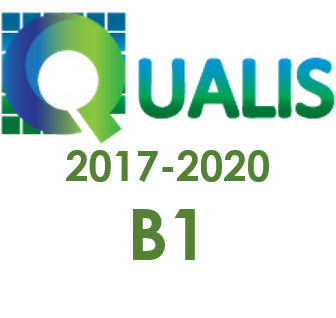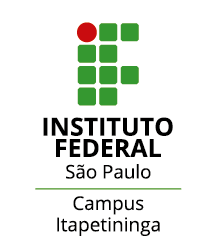In the review of an inclusive school
envisioning the STEAM approach with a student with learning and inclusion support measures
Keywords:
STEAM approach. Inclusion. Special Educational Needs. Inclusive school.Abstract
The STEAM approach brings an interdisciplinary look at the interconnection of different areas in the teaching and learning process. This article aims to present a case study carried out in a school in Portugal, with a student who takes advantage of additional measures to support learning and inclusion, based on a STEAM approach, from a perspective of inclusion for all. This case study had the following objectives: to intervene through the planning and development of learning support activities taking into account your student profile; prepare the respective material resources; contribute to the improvement in terms of their learning and the marked and persistent difficulties in terms of communication, interaction and cognition, guaranteeing access to the curriculum. The results indicate that the interventions carried out led to the development of skills in terms of communication, collaborative work, and decision-making.
Downloads
References
BLANCO, T. F.; GONZÁLEZ-ROEL, V.; ARES, A. A. Estudo exploratório de las STEAM desde as Matemáticas. Saber & Educar, Porto, v. 28, p. 3-10, 2020.
BUCKLEY, S., BIRD, G. Including children with Down syndrome. Down Syndrome News and Update, Burnaby, v.1, n.1, 1998, p. 299.
CORREIA, L. M.. O sistema educativo português e as necessidades educativas especiais ou quando a inclusão quer dizer exclusão. In L. M. Correia (Org.) Educação especial e inclusão: Quem disser que uma sobrevive sem a outra não está no seu perfeito juízo. Porto: Porto Editora, 2003. p.9-44.
CORREIA, L. M. et al. Alunos com Necessidades Educativas Especiais nas Classes Regulares. Porto: Porto Editora, 2003
COSTA, I. Intervenção precoce: impacto do PROIP nos vários subsistemas: Criança, família, técnicos e serviços no distrito de Castelo Branco. Dissertação (Mestrado em Ciências da Educação), Universidade da Beira Interior, Covilhã, 2002.
DECRETO-LEI 54/2018 de 6 de julho. Diário da República n.º 129/2018, Série I de 2018-07-06
DEL PRETTTE, Z.; DEL PRETTTE, A. Psicologia das habilidades sociais. Teoria e Prática. Petrópolis: Editora Vozes, 2005.
GREENHALGH, T., ROBERT, G., MACFARLANE, F., BATE, P., & KYRIAKIDOU, O. Diffusion of innovations in service organizations: Systematic review and recommendations. The Milbank Quarterly, 82(4), 581-629, 2004. Disponível em: https://onlinelibrary.wiley.com/doi/10.1111/j.0887-378X.2004.00325.x
MARTINHO, L. S. T. Comunicação e Linguagem na Síndrome de Down. Dissertação (Mestrado em Educação), Escola Superior de Educação Almeida Garrett, Lisboa, 2011.
LEMOS, M. S.; SERRA, M. Roteiro de Anamnese para Crianças e Adolescentes. Belo Horizonte: Centro de Estudos Avançados de Psicologia, 2000.
MACHADO, E. D.; JÚNIOR, G. G. Interdisciplinaridade na investigação dos princípios do STEM/STEAM education: definições, perspectivas, possibilidades e contribuições para o ensino de química. Scientia Naturalis, Rio Branco, v. 1, p. 43-57, 2019. Disponível em: https://www.researchgate.net/publication/336371143_Interdisciplinaridade_na_investigacao_dos_principios_do_STEMSTEAM_education_definicoes_perspectivas_possibilidades_e_contribuicoes_para_o_ensino_de_quimica#fullTextFileContent
NUNES, C.; MADUREIRA, I. Desenho Universal para a Aprendizagem: Construindo práticas pedagógicas inclusivas. Da Investigação às Práticas, Lisboa, v. 5, n. 2, p. 126-143, 2015. Disponível em: https://www.researchgate.net/publication/299369627_Desenho_Universal_para_a_Aprendizagem_Construindo_praticas_pedagogicas_inclusivas#fullTextFileContent
OLIVEIRA MARTINS, G. (ORG.). Pefil do Aluno à Saída da Escolaridade Obrigatória. (PASEO). Ministério Geral da Educação, Lisboa, 2016. Disponível em: https://dge.mec.pt/sites/default/files/Curriculo/Projeto_Autonomia_e_Flexibilidade/perfil_dos_alunos.pdf
PEREIRA, F. et al. Para uma educação inclusiva: Manual de apoio à prática. Direção Geral de Educação, Lisboa, 2018. Disponível em: https://www.dge.mec.pt/sites/default/files/EEspecial/manual_de_apoio_a_pratica.pdf
ROLDÃO, Maria do Céu. Currículo e natureza profissional do conhecimento dos professores: focagem ou difusão? In: COLÓQUIO LUSO-BRASILEIRO SOBRE QUESTÕES CURRICULARES, 3, Braga. Actas, Braga, 2006.
ROSE, D., & MEYER, A. (2002). Teaching every student in the digital age. Alexandria, VA: ASCD.
SAMPEDRO, M. F., BLASCO, G. E HERNÁNDEZ, A. A Criança com Síndrome de Down. In: R. Bautista (coord.). Necessidades Educativas Especiais. Lisboa: Dinalivro, 1993. p.225-248.
SANCHES-FERREIRA, M. Educação Especial Educação Regular, uma história de separação. Porto: Afrontamento, 2007.
SANCHES, I. Compreender, agir, mudar, incluir: Da investigação-acção à educação inclusiva. Revista Lusófona de Educação, Lisboa, 05, 127-142. Disponível em: https://revistas.ulusofona.pt/index.php/rleducacao/article/view/1015
SANCHES-FERREIRA, M.; LOPES-DOS-SANTOS, P.; SANTOS, M. A. A desconstrução do conceito de Deficiência Mental e a construção do conceito de Incapacidade Intelectual: De uma perspetiva estática a uma perspetiva dinâmica da funcionalidade. Revista Brasileira de Educação Especial, Rio de Janeiro, v. 18, n. 4, p. 553-568, 2012. Disponível em: https://www.scielo.br/j/rbee/a/NVYyjkLG4V6r4Cvgf58bsgM/abstract/?lang=pt
SOUSA, JERÓNIMO (coord.). Necessidades Especiais de Educação. Parceria entre a Escola e o CRI: Uma Estratégia para a Inclusão. DGE/DSEEAS, Lisboa, 2015.
UNESCO. Declaração de Salamanca sobre princípios, políticas e práticas na área das necessidades educativas especiais. 1994.
VYGOTSKY, L. S.; LURIA, A. R.; LEONTIEV, A. N. Linguagem, desenvolvimento e aprendizagem. São Paulo: Editora da USP, 1988.
Downloads
Published
How to Cite
Issue
Section
License
Copyright (c) 2025 Revista Internacional de Pesquisa em Didática das Ciências e Matemática

This work is licensed under a Creative Commons Attribution-NonCommercial-ShareAlike 4.0 International License.




